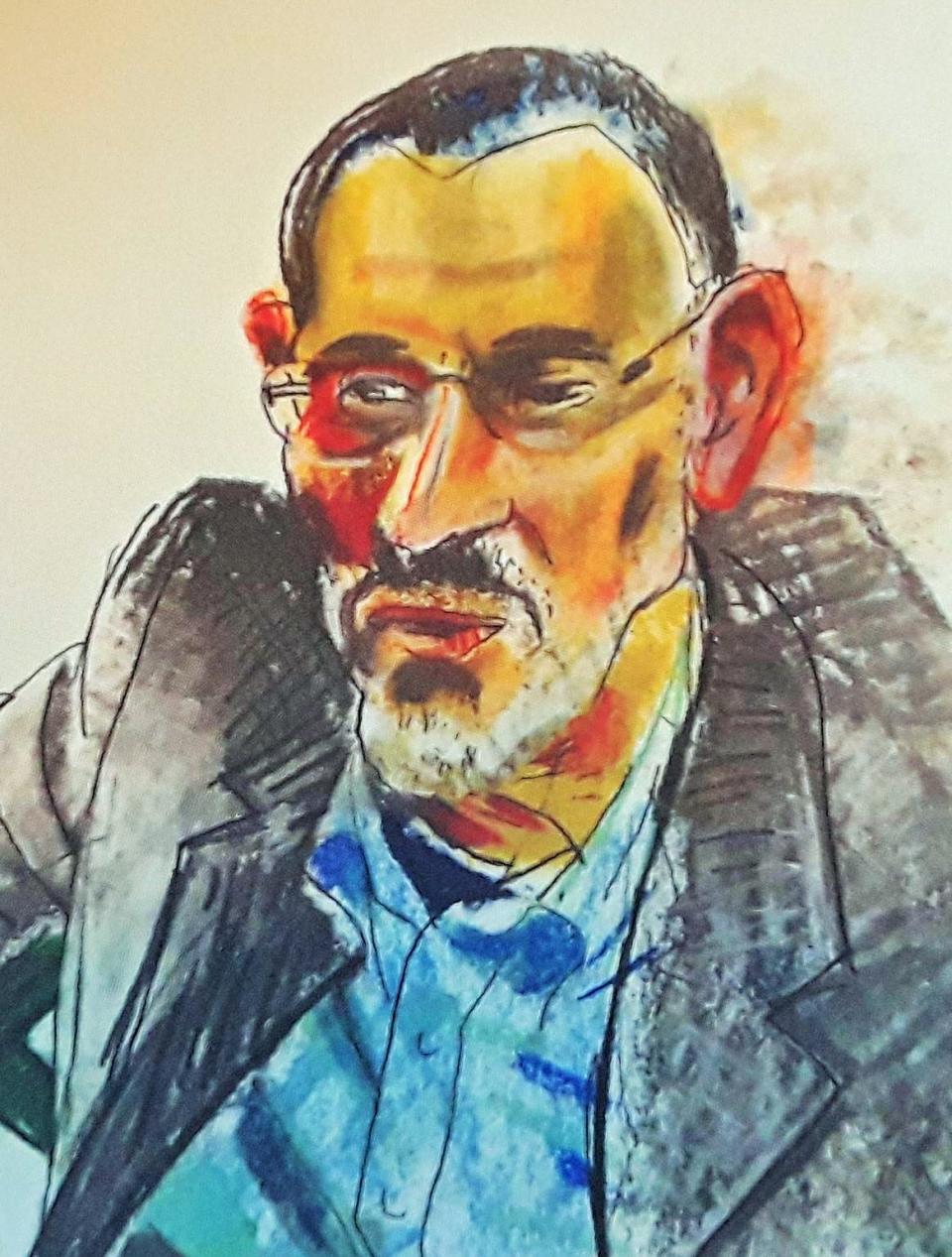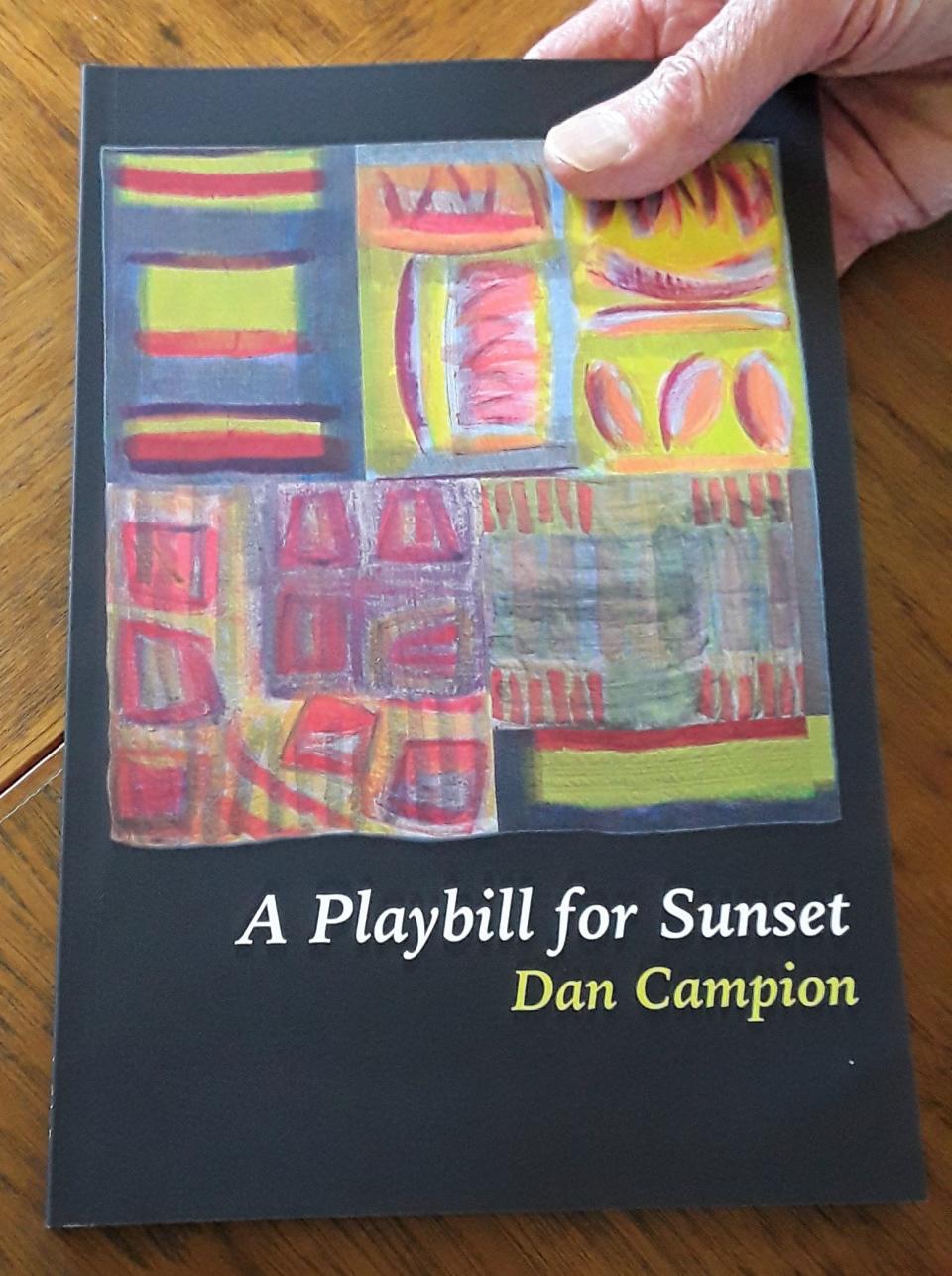'Poetry chose me': Iowa City’s Dan Campion lets the currents of verse flow in new book
- Oops!Something went wrong.Please try again later.
Lightning struck Dan Campion more than a half century ago as he sat in his high school English class in Chicago reading Percy Bysshe Shelley’s classic poem “The Cloud.”
Not the kind of lightning you get from storms, but to him, something very close to it. A true revelation. An epiphany.
“It was a thunderbolt,” Campion told me as we chatted in his book-rich Iowa City den recently. “I wanted to do the kinds of things Shelley did with words.”
From that point on, he started writing poetry and never looked back — finding time when he could through editing careers with the Encyclopaedia Britannica company in Chicago, nearly 30 years with ACT in Iowa City, and university teaching.
Now retired and 72, he has seen more than 800 of his poems published in poetry magazines across the country, as well as in other publications. And he has written thousands more.

Along the way, he secured his Ph.D in English from the University of Iowa, co-edited three editions of a book titled “Walt Whitman: The Measure of his Song,” plus published a book focused on nationally prominent writer and Poetry magazine editor Peter De Vries.
“I didn’t choose poetry,” he told me with a grin. “Somehow, poetry chose me.”
It was a good fit.
And now, Campion’s first book devoted to his own work is in bookstores. “A Playbill for Sunset” has been published by Ice Cube Press of North Liberty. It features 67 of his poems, most of them previously published and many composed during the COVID-19 pandemic.
He’ll present some of them during a 7 p.m. book reading July 14 at Prairie Lights Bookstore. He selected the Bastille Day date as a nod to the French heritage of his father and grandfather.
Although hardly qualified to be a critic, Campion’s poetic style is to my liking. There is little obscurity here. His poems simply seem to make sense, to connect, often with a particular line that strikes a chord with readers like me.
For example, in “Storm Windows,” he explores the simple task of taking a broken one to the shop.
“Every town has a man in jeans / and a flannel shirt who’s better / than you in sealing out the weather,” he writes.
In “The Frog Prince,” gossiping frogs lament their poor brother, pitied for being forced to transform into a clumsy human with what they view as a goblin shape.
The final two lines: “A prince, they sputtered, what is that? A curse / which they could find no Merlin to reverse.”
“Tornado Sonnet” gives the feeling of cowering under the stairs as a tornado rages through Iowa City.
The last lines: “The all clear sounds. School out from shadowed cave / we scan our town to see what we can save.”

Campion remains a fan of the classic French, Greek and Roman poets and philosophers, and references them on occasion in crafting a good sonnet. The basic form of a sonnet, you might recall, is a 14-line poem with 10 syllables per line, with various rhyming patterns allowed.
“There is so much communication today, and people don’t have time to craft what they write,” he lamented. “I have the fantastic luxury to have time to employ craft to shape the ideas that come to me.”
He likes the discipline of structure in a sonnet. He pointed out that Shakespeare was the master of the sonnet, and that the form has endured the test of time.
“They’re still selling Shakespeare sonnets at Prairie Lights 400 years later,” he declared.
Campion admitted to fulfilling the poet stereotype by being slightly quirky, at least in terms of modern conveniences. His kitchen has never seen a microwave oven and he purchased his first smart phone just a few days before our interview.
And since the death of his wife JoAnn Castagna 10 years ago, his daily routine has become seriously predictable. He wakes up, has breakfast, then moves to his den full of books, which faces Rochester Avenue. He selects one of two comfortable chairs in front of the window, depending whether the day is cloudy or sunny, and begins to write in longhand on paper.
“Sometimes I write all morning; sometimes less than an hour,” he said.
More often than not, he ends up with a poem that satisfies him.
Although his poems embrace humanity, Campion told me his inspiration comes more from nature than people. That means he prefers pondering the scenery at Terry Trueblood, the Iowa River, or Hickory Hill Park over that of the Ped Mall.
In his sonnet “Time’s Arrow,” he offers this memorable praise of an extraordinary naturalist as its ending: “Thoreau could find an arrowhead and hear / the breathing of the hunter and the deer.”

Soft-spoken and modest, the Iowa City poet laughed when I asked him how he might review his own book of poems.
“I would just hope people might open it up and decide it was worth reading,” he said.
He then added with a grin: “You know, Walt Whitman would sometimes review his own work under several pen names. He always gave himself excellent reviews.”
Here is a sample sonnet from the Campion’s new book:
Found Object
By Dan Campion
A flourish of graffiti wreathes the wreck
upended on its roof where river trail
bends tight as horseshoe, limp as broken neck,
around the stand of trash trees in the vale.
This isn’t gallery work put up for sale,
no sign of empire rotting in the wood,
it’s just a car some kids headed for jail
took spray cans to, from fins to ripped-off hood.
It makes you look around, for your own good,
to see who might be lurking in the brush.
“Outsider art” museumed sets a mood,
but in the field like this, you get a rush.
I doubt this car gets dragged back to the road.
We leave it here in splendor to corrode.
This article originally appeared on Iowa City Press-Citizen: Meet Iowa City poet Dan Campion, author of new book at age 72

